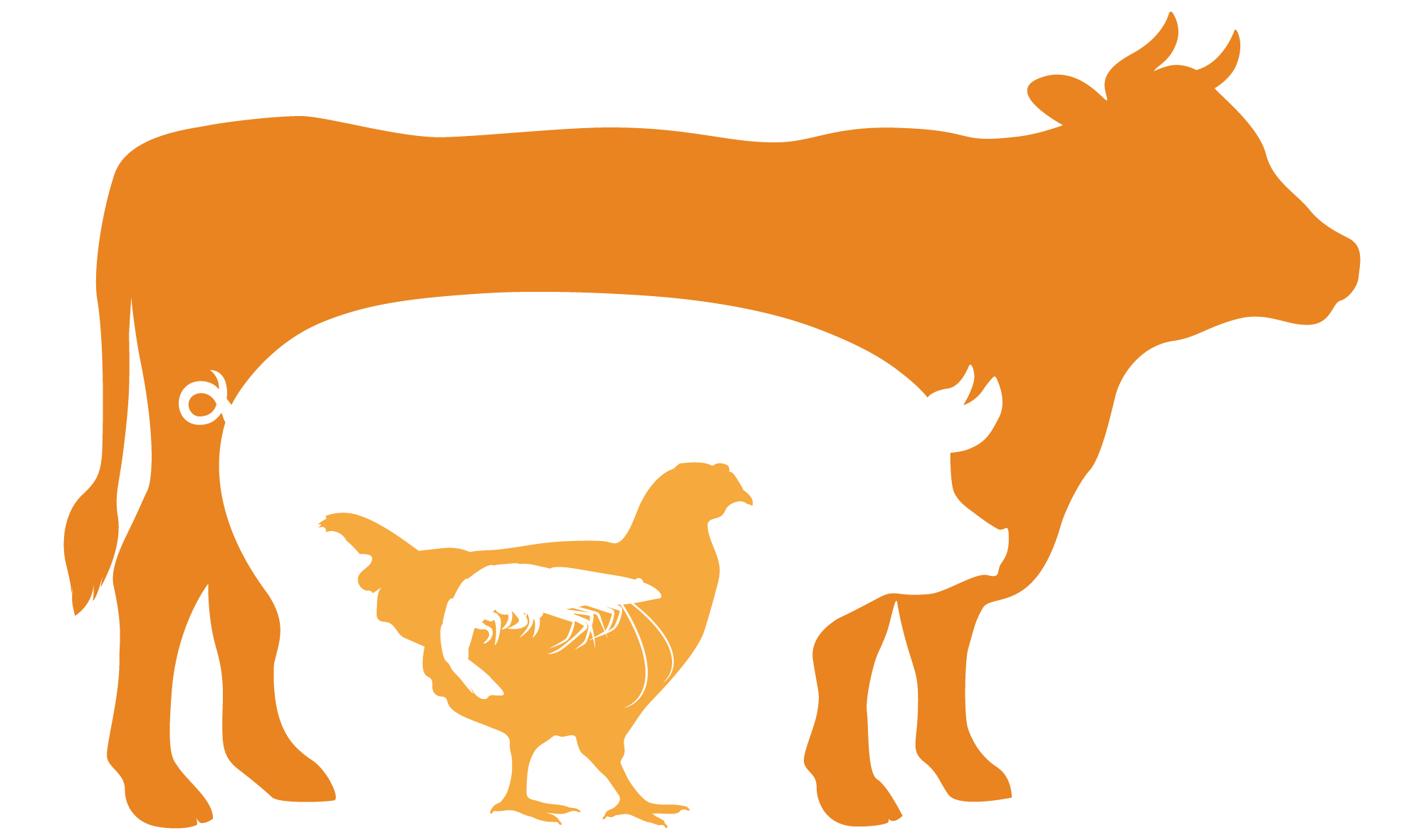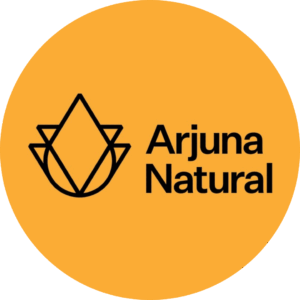What if your food could send signals to your body?
What if your breakfast could change its nutrient makeup according to your sleep quality the previous night or your stress level this morning?
That is where the future of Personalised Nutrition is heading – a partnership where science and technology customize your food, supplements, and health advice to be as unique as your fingerprint.
People have spent many years following the same old diets, running after wellness plans meant for all, and pondering why the results vary among individuals. Now the answer is here: it is all due to the different functioning of the bodies. The combination of your genotype, your microbiota, your environment, and your habits tells a biological story that is exclusively yours. And Personalised Nutrition is the means through which your tale is told, comprehended, and nourished.

By the year 2030, the relationship between man, nature and food will have undergone a paradigm shift, and the world will never be the same again. This is not another trend; rather, it is a slide into the future where the idea of eating what you are will become common.
The Instant the Globe Began to Pay Attention to the Body
Nutrition was thought to be a straightforward matter for quite a while. Cut down on sugar. Move more. Drink water.
However, even the most healthful suggestions can backfire if they are not in sync with your physiology.
Take two people for instance, both have the same salad. One gets energized, the other feels bloated. The question is why?
The response is that their gut flora, metabolic rate, and DNA are interpreting the same food differently.
That awareness marked the beginning of a global consciousness. Scientists, medics, and inventors started to think:
What if we were able to customize nutrition to each and every individual — not only on the basis of age or sex but on the basis of biology?
Thus was Personalised Nutrition conceived — through the conviction that health begins with getting to know the person behind the plate.
The Science Behind Personalised Nutrition
Data is the key to Personalised Nutrition — but not just any data that stays in a lab. This is live data, which reflects your daily lifestyle, is obtained from wearables, and even includes your DNA.
- One of the tests involved is genetic testing, which reveals the types of nutrients your body can readily absorb.
- Another one is microbiome which tells you the bacteria strains in your gut, their influence on your digestion and immunity.
- Biometric data from wearables provide you with feedback on the effects of your food intake on sleep, energy, and mood.
The integration of all these data points results in the production of a blueprint – a customized nutritional map specifically designed for you.
Thus, instead of receiving somewhat unclear tips like “you need more protein,” you are provided with elaboration like:
“Your organism gets better the absorption from plant protein than animal protein.”
Or, “From your genes, it can be concluded that you have a greater demand for omega-3 for the heart.”
This sets apart “eating healthy” from “eating right for you”.
Global Market Outlook 2025–2030
The globe is indeed quickly adapting. The worldwide Personalised Nutrition market is expected to experience a vigorous growth uptil 2030, which will be mainly attributed to the factors awareness, access, and technology.
It is likely that by 2025, a few million people will have already downloaded the apps that provide real-time analysis of their meals. Meanwhile, personalised supplements along with smart foods will be an integral part of the daily lives of the people by 2030.
On top of that the following trends are to be the key market drivers:
- Data-driven platforms: Harnessing genetics, microbiome, and living habits data to create individualized meal plans that are most suitable for a person.
- Customized supplements: Personal nutrient mixtures are now based on the results of biomarker analysis.
- Smart food delivery: Fresh delivery of meals precisely catered to your requirements, being updated in real time.
- AI-assisted recommendations: A constant learning technology from your health that gives you more sophisticated advice repeatedly.
- Holistic wellness ecosystems: Brands shall connect nutrition not only with mental health but also with sleep and fitness, thus creating complete personal health systems.
It’s a long way before this evolution would affect only diets; rather, it would be a universal impact on the food, healthcare, and technology sectors globally.
What It Means for Brands and Consumers
Personalised Nutrition comes as a double-sided sword for brands. The long-standing trend of mass production is being replaced with mass personalisation. The consumers are vigorously opposing the mere products; they are voicing their demand for partnership instead. They are after brands that are fully aware of them—their likes, dislikes, and even personal goals.
This implies that the firms are obliged to rethink their strategies in developing, labelling, and delivering nutrition. The sourcing of transparent ingredients to the setting up of smart data systems are the areas companies will have to work on in order to adapt and take over the wellness market for the next decade.
This scenario is a total release for the consumers. No more guesswork on the effectiveness of diets, no more feeling bad after using the latest trend. It’s connection now—knowing what your body really asks for and giving it as per requirement.
Think of it; your supplement pack changing every month based on your level of energy. Or the nutrition app sending you a reminder to drink water whenever the sleep data indicates fatigue. This kind of situation is no longer luxury; it is the reality of Personalised Nutrition.
Technology: The Invisible Nutritionist
At the very core of Personalised Nutrition is technology that is discreetly changing the way we eat.
Wearables become the ears of our body—detecting heart rate, glucose, movement, sleep—and turning these signals into numbers. The Artificial intelligence then goes through this information in conjunction with your genes and lifestyle to create a personalized nutrition plan, recipes, and even supplements.
The health tech and food industry will be indistinguishable by the year 2030. There might be smart packaging that alters suggestions according to your latest test results, or kitchen gadgets that modify recipes to fit your nutrient targets.
The groceries you purchase will not only satisfy your hunger but also supply your distinct nutritional void.
Challenges on the Road Ahead
Personalised Nutrition, regardless of its capabilities, has to face the first of those challenges.
- Data privacy: The main concern is talking about the true security of personal health data, not merely its storage but the privacy that would generate a real trust.
- Accessibility: Is it so that Personalized Nutrition is to be a luxury that only the privileged can afford or can it become a solution that is available and affordable for all?
- Scientific backing: The claims in this area should be supported by strong research. People should get advice that is scientific rather than based on trends or assumptions.
- Lifestyle change: Would there be adherence to personalised advice by the clients?
The above questions are the ones that are drawing the banners of ethics and the future of this movement. The trust-making process through transparency will be critical as more individuals and firms get involved in the area.
The road to the future is, however, unmistakable; the trend is not going to be the application of personalization as a gimmick— it is going to be the foundation of contemporary nutrition.
Imagining 2030: A Day in the Future
You wake up, and your smartwatch quietly shows how well you slept. It’s 2030 — your morning already understands you.
Your breakfast recommendation shows up, and it says, “You need more magnesium today — stress levels have gone up a bit.”
Your lunch is ready in the fridge — the ingredients are based on the energy you need, and the blood sugar you are going to have. Then a kind notification from your app in the afternoon suggests you drink water and takes your supplement pack — the one that was made only for your metabolism.
At night, you check your progress. The intake of nutrients, sleep, and recovery are all in perfect harmony. No need to count calories. No need to be confused. Only personal balance.
It may sound like a fantasy, but this is the future of Personalised Nutrition at its best — a daily mixture of data, biology, and intuition working together for your health.
The Human Side of a Data-Driven Future
Although it is an advanced future, the real power of it lies in the human quality of empathy and not in the technology. The most sophisticated systems of Individualized Nutrition will not only provide analyses, but they will also show empathy. The will to understand and show each user the right path will create a relationship with him in which he feels understood, listened to, and taken care of.
Since health is something individual and thus very personal — and nutrition, when it is right, should be the same.
Conclusion: The Food Revolution Begins Within
Nutrition is on a path of transformation — not loud, but of great impact. For a long time, dietary recommendations were strict and all-consuming. The good news is that the world is finally able to hear — not to fads or statistics, but to the organism itself.
Personalised Nutrition is what this has come to signify — the liberty to get to know the body’s signals. It’s eating in accordance with your lifestyle, while it’s not placed under the rules of restriction. It’s science plus feeling.
And in this adventure, companies like Arjuna Natural are progressor in the overlap of the discovery and the use of daily. They don’t merely come up with products; they also share trust — through deep research, natural intelligence, and genuine concern for human being’s well-being.
To observe their work is to see that Arjuna does not run after the next big success; rather, they consistently mold it with intent. Their pledge to purity, sustainability, and innovation is a mirror to Personalised Nutrition: nourishment that is natural, ethical, and mindful of the uniqueness of every person.
It’s going to be a long journey until 2030, but the scenario of wellness won’t pivot on the adoption of a global recipe book. Rather, it will be about self-awareness, making the right choices for you and living with mindfulness. The reason for this is that the most sophisticated diet will never be a textbook formula — it will be based on human relationships.
This is when the genuine revolution takes place: not in the food but in the depth of our learning and our respect for the body that nourishes.
FAQ
1. What is Personalised Nutrition precisely?
It is the method that establishes a person’s nutrition and health necessities depending on their genetic makeup, way of living, and biology—personalized nutrition plans for every individual.
2. What’s the working principle behind Personalised Nutrition?
The whole process of Personalised Nutrition is based on the combination of genetic tests, data from wearables, and lifestyle of the person so that food or supplements are recommended which are perfectly tailored to that person’s body
3. What is the reason for the global trend of Personalised Nutrition?
The explanation is very straightforward: individuals prefer to have various diets instead of the universal one. Personalized Nutrition is giving results based on data, not on guesswork—thus making health both accessible and individual.
4. Is Personalised Nutrition a costly thing?
Though the programs that were launched initially were pretty expensive, the technological innovations are making Personalised Nutrition widely available and less costly every day.
5. Do the Personalised Nutrition methods contribute to weight loss?
Definitely, the treatment weighs how the individual’s body processes food and thus nutrition becomes a targeted strategy instead of trial and error.
6. In what way does Personalised Nutrition resort to technology?
It utilizes the wearables, DNA tests, and apps data to decode your body signals and to suggest nutritional changes instantly.
7. Is Personalised Nutrition a risk-free process?
A big YES! when it’s through reputable providers; Personalised Nutrition is continually backed by scientific evidence and health-grade testing.
8. Is there a possibility that Personalised Nutrition would have a positive influence on mental health?
Certainly, the explanation is that it handles the nutrients implicated in mood and brain functions through Personalized Nutrition whereby the support of mental health becomes part of the physical health area.
9. Which sectors will be the primary beneficiaries of the Personalised Nutrition trend?
Food innovation, nutrition supplements, and digital wellness are the main players that have already perceived the change because the consumers are, with more demand for personalized products and services- no longer are the consumers happy with the traditional one-fit-all solutions.
10. Is Personalised Nutrition an alternative to doctors and dietitians?
No, it is a plus for them. Personalised Nutrition adds more light that professionals can utilize in the process of giving proper recommendations.
11. By what means is the worldwide industry for Personalised Nutrition developing?
The period of five years from 2025 to 2030 is expected to witness a remarkable growth due to the synthesis of AI, genetics, and food science working together.
12. Would Vegan or Plant-based diet be the only option for Personalized Nutrition?
It can be customized to any diet and still be rich in nutrients, therefore, it can be strict to vegan or plant-based diet at the same time.
13. What is the significance of data privacy in Personalised Nutrition?
User data protection is of great importance — encrypted systems are employed by trustworthy platforms to secure Personalised Nutrition information.
14. How long before Personalised Nutrition effects can be felt?
A few weeks into working on the personalized plan is the time most people report experiencing good changes like increased energy, easier digestion, more focused mind, and even enhanced creativity among others.
15. 2030 will be the year when Personalised Nutrition will be a common practice?
Definitely, as the awareness of Personalized Nutrition grows and the price goes down, it will be done through a daily wellness routine for people across the globe.
16. In what way does Personalised Nutrition help athletes?
It leads athletes to determine the specific nutrition their bodies require, thus complementing their natural cycle to raise energy, expedite recovery, and improve overall productivity.
17. Is Personalised Nutrition suitable for older adults?
Yes, Personalised Nutrition is a great advantage for the elderly hence it can be formulated according to their metabolic, osteoporotic, and energy needs.
18. How does Personalised Nutrition help in chronic conditions?
The metabolic process understanding would help nutrition personalized for certain chronic conditions; for instance, diabetes, hypertension, and digestive problems are some of the conditions where Personalised Nutrition can act as a helper.
19. Can Personalized Nutrition Improve Gut Health?
Yes, by means of microbiome testing, the diets can be modified in such a way that the good bacteria are encouraged and a well-functioning digestive system is maintained.
20. What makes Personalised Nutrition the future of wellness?
The fact is that it is not just another diet; it is all about accuracy, personal demands, and durable results that are made specifically for you.











